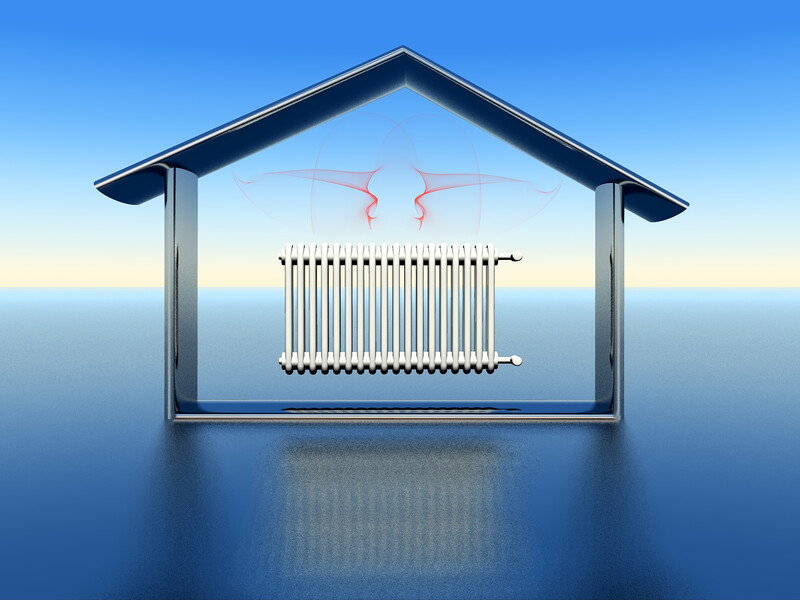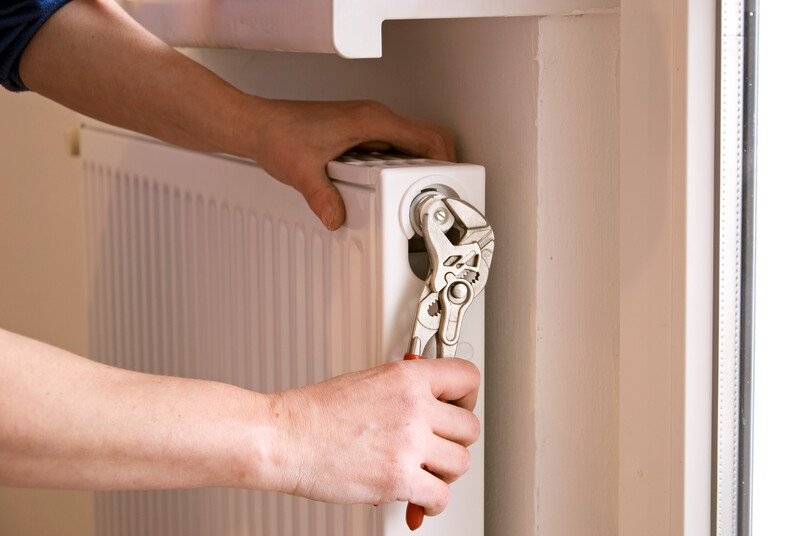5 Reasons Why Your Radiator is not Heating Up

A boiler is a mechanical device that heats water to create hot water, steam, and/or pressurised air. It works in conjunction with an attached radiator (a metal box containing pipes through which heated water flows) to provide heating or cooling. When it’s working properly, the heat generated by the boiler transfers into the room via the radiator, warming your home up in winter and keeping you cool during the summertime. Unfortunately, boilers can malfunction for any number of reasons – from a human error to faulty parts – and one of these malfunctions could be affecting your ability to keep warm this winter. Have a quick look around for anything out of place before calling out a professional; here are five common problems with radiators.
5 Reasons Why Your Radiator is not Heating Up
1) You might have set the thermostat too low or turned it off entirely
This is often the first thing people check when they’re having problems getting heat from their radiators. It’s possible that the thermostat is set too low or turned off completely. Make sure to set the thermostat to a temperature that’s comfortable for you and see if the heat starts coming back on. To fix this, turn up the thermostat and see if the heat starts coming on. If the thermostat is set correctly and it’s still not working, you might need to replace it.
2) The air valves may be closed or blocked
If your radiator isn’t heating up, it’s possible that the air valves are closed or blocked. This will prevent the radiator from getting any hot water and it won’t heat up. If the air valves are closed or blocked, the radiator won’t be able to get any hot water and it will remain cold. This is often caused by a build-up of dirt and debris over time. If the valves are blocked, you’ll need to clean them out in order to get the heat working again. This can be done with a toothbrush or a pipe cleaner. You can also use a plunger if there’s any build-up of dirt and debris in the valve. Be sure to close the valve completely before plunging it. If that doesn’t work, you might need to replace the valve.
3) Your drain pipe may be clogged
If your drainpipe is clogged, it will prevent the hot water from getting to the radiator. This will cause the radiator to remain cold and you won’t get any heat. The most common way to clear a clogged drain pipe is by using a plunger. Put the plunger over the drain and push and pull it up and down. You may have to do this for a few minutes before the clog clears. If the plunger doesn’t work, you can try using a plumbing snake to clear the clog. Insert the snake into the drain and twist it around until the clog is cleared. If neither of these methods works, you might need to call a professional to clean the drain for you.
4) Older heating system
If you have an older heating system with tubes in the radiators, these tubes often develop leaks as they age. This will cause the radiator to remain cold and you won’t get any heat. The only way to solve this is by replacing the tubes in the radiator. You can do this yourself or you can call a professional to do it for you.
5) Low water pressure might affect your radiator because higher pressure can force:
Low water pressure can be caused by a variety of things, including a clogged drain pipe, a leaky faucet, or a broken water main. If you have low water pressure, it might prevent the radiator from getting any hot water and it will remain cold. You can try to increase the water pressure by turning up the faucet handle all the way. If that doesn’t work, you might need to call a professional to take a look at your plumbing system. They can help you find and fix the problem.
These are the five most common reasons for no heat coming from your radiator. Be sure to check these things before calling a professional to take a look at your heating system. They can help you find and fix the problem so you can start getting some heat.
